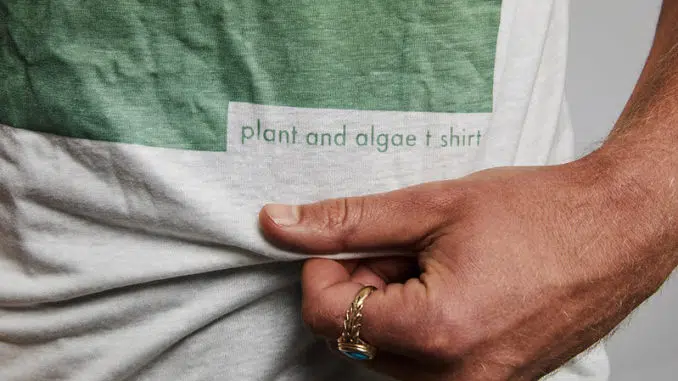
Compostable t-shirts made with trees and algae.


Did you know that you can make clothes with algae, beech and eucalyptus trees? Even more surprising, do you know that once worn out, you can bury it in your garden to feed earthworms and mushrooms? A 100% ecological alternative to cotton.
Our t-shirts are usually made of cotton, a vegetable fiber from a shrub called cotton. But cotton production is also the most polluting in the world. To grow cotton, you need huge amounts of freshwater. To produce 2 lb of cotton, you need to consume between 5,000 and 22,000 liters of water. It’s enormous.
In addition, farmers use a lot of pesticides and other chemicals that end up in our rivers. This pollution is estimated to be at least 17% of the world’s water pollution.

Chemical product intended to destroy animals or plants.
Elongated material in the form of filaments.
The Vollebak company, located in the United Kingdom, produces these compostable t-shirts from trees and algae. Concretely, the fiber of the t-shirts is made from beech pulp and eucalyptus, trees from certified sustainable forest plantations. Then 99% of the water and solvents used to transform the pulp of these trees into textile fibers are recycled and reused.
These fibers are then used to make the fabrics that make up the t-shirts.
Seaweed is used to color the fabric. Instead of using industrial pigments, manufacturers have chosen to use the natural green found in certain algae called spirulina.

Non salted water
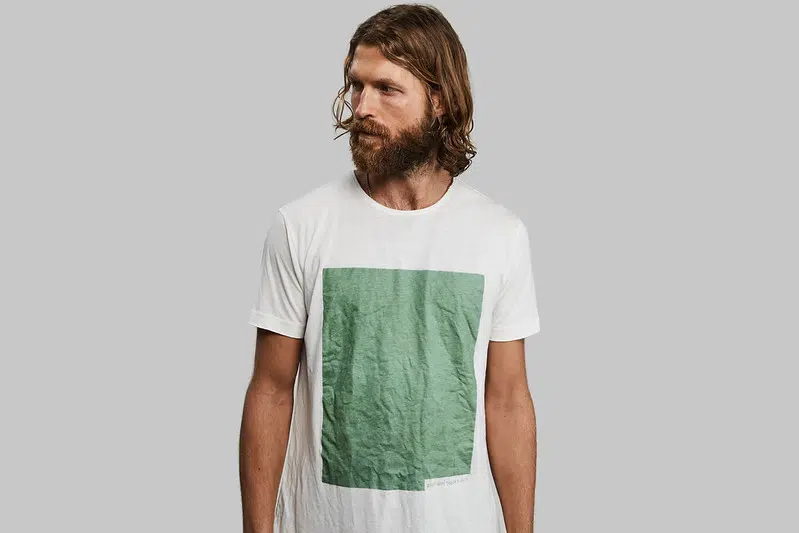
The Higg index, which measures the environmental impact in textile production, is only 10 for these t-shirts, while cotton reaches an index of 60.
In addition, algae grow very quickly in reactors, while transforming carbon dioxide, a greenhouse gas, into oxygen. Their only needs: light, carbon dioxide, and water. Easy!
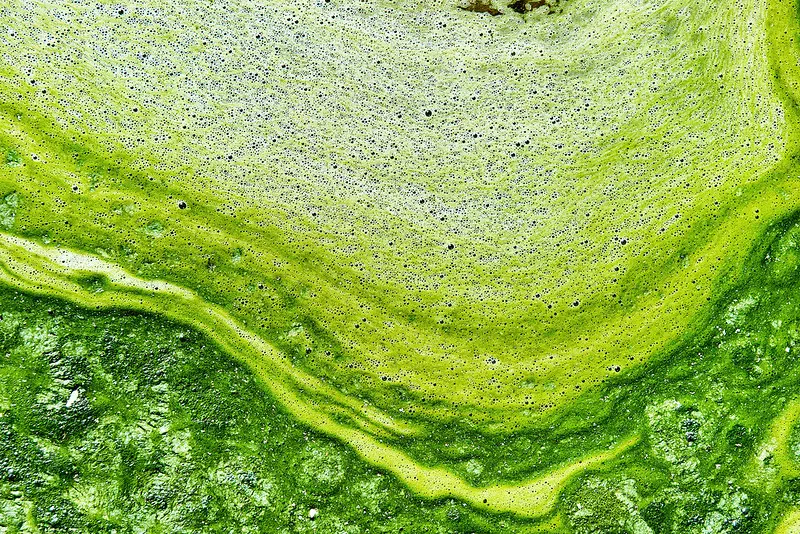
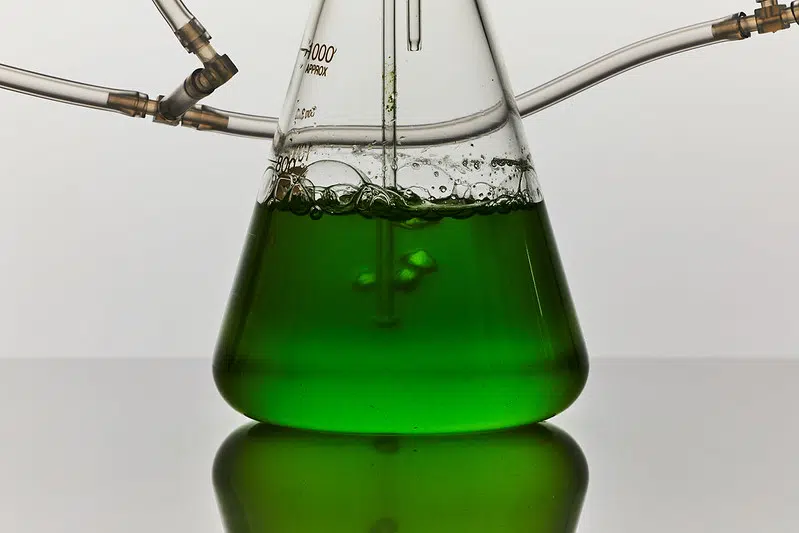
When your t-shirts are too worn to be worn, the reflex is often to throw them in the trash. Here, at the end of its life, your t-shirt can be put on the compost heap, or buried in your garden. Mushrooms and earthworms in the soil will “eat” your t-shirt in less than 12 weeks.
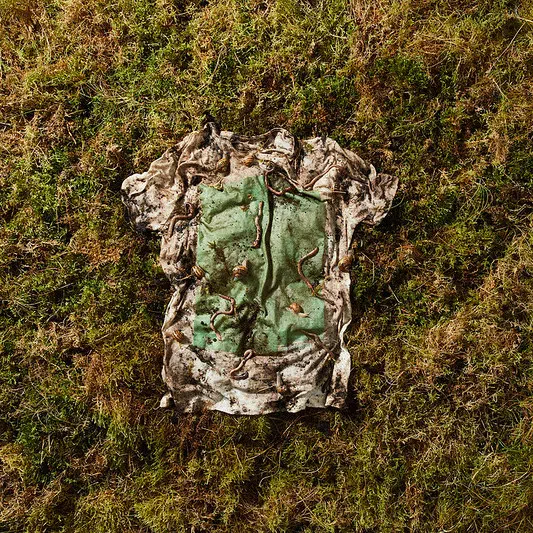
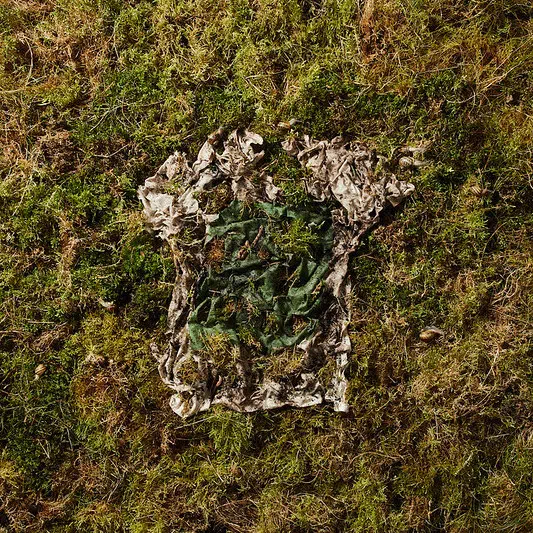
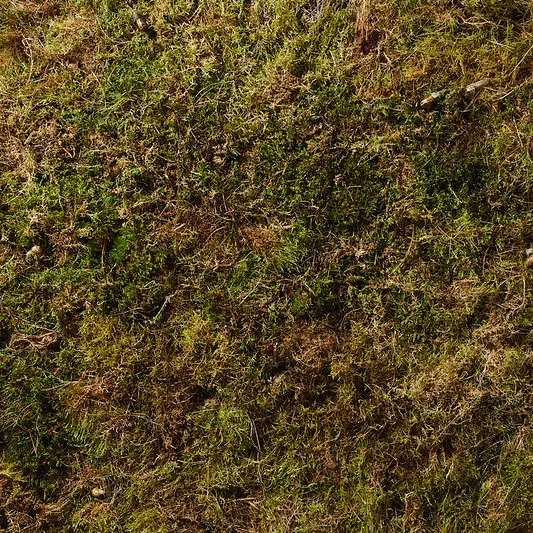
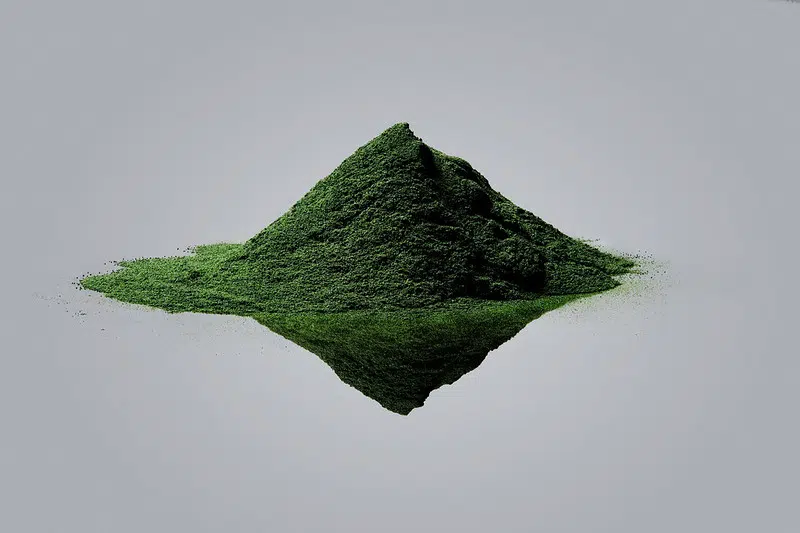
Spiruline powder

The liquid used to dissolve a substance.
The useful part of the waste can be reused for other applications.
Yes, you can wash them without a problem. The only way to break them down is to put them in your compost, where teeming critters and micro-mushrooms are, which will treat it as a delicious dessert.
Copyright © 2023 | CurioKids.net - All rights reserved